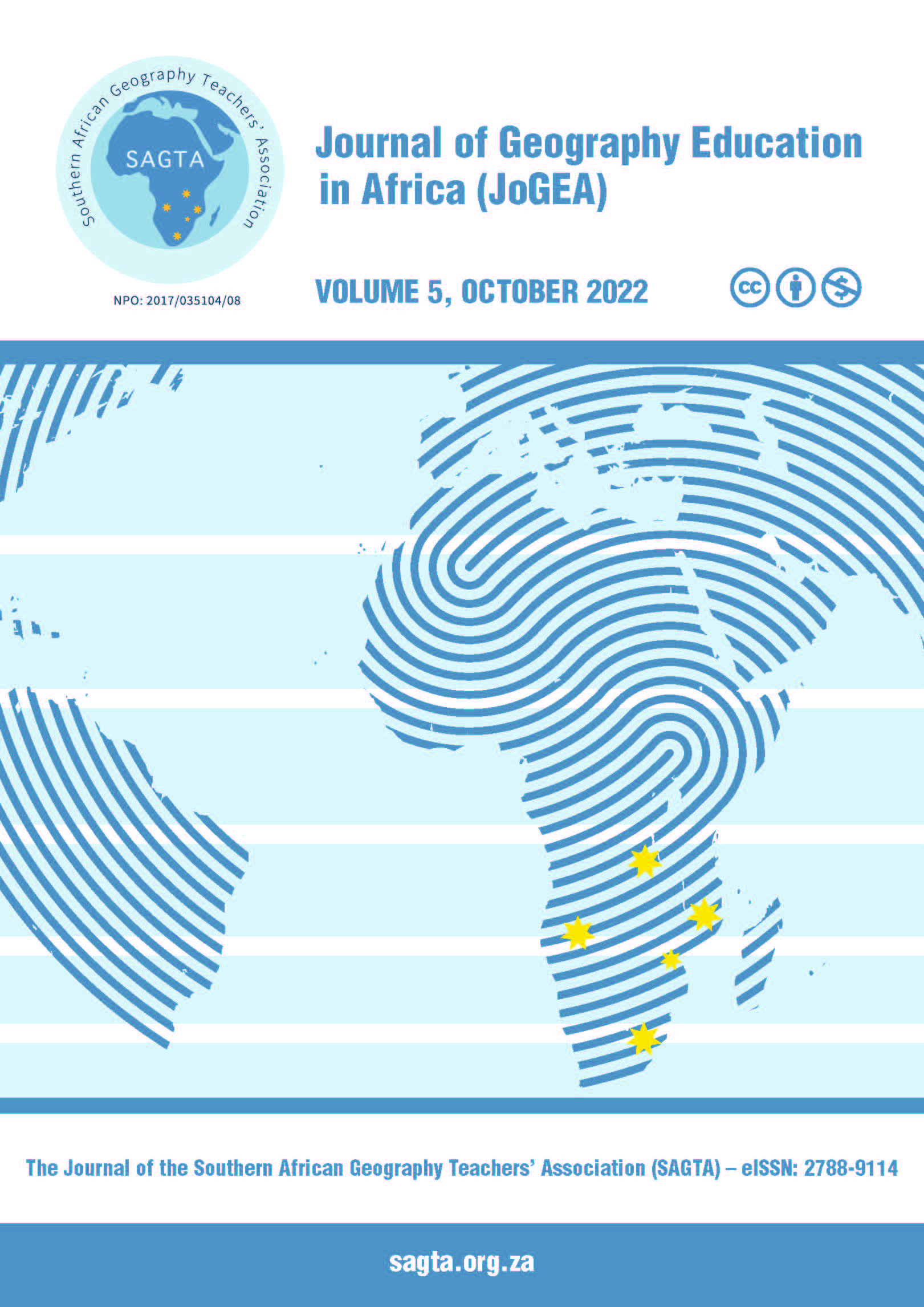Environmental Education efforts in a rural drought-prone district in Zimbabwe: Micro innovations with growth potential
DOI:
https://doi.org/10.46622/jogea.v5i1.4114Keywords:
Environmental education, climate action, climate change mitigation, climate change adaption, climate change, droughtAbstract
In Sub-Saharan Africa, climate change is evident due to the frequency of drought cycles. This paper explores the Environmental Education (EE) efforts for reducing the impact of climate change in drought prone Gwanda district, Zimbabwe. The paper focuses on how climate change mitigation and adaptation stakeholders within the community can initiate EE programs which have the potential to be upscaled to macro innovations. A qualitative interpretive case study approach was used with three data generation tools (interviews, a focus group discussion and document analysis). The sample comprised 38 participants. The study was guided by the Sustainable Rural Livelihoods Framework (1998). The study revealed that for EE programmes to be effective, they have to harness local factors. The study found that formal field days, information and skills sharing among neighbours during letsema/lidaba and Indigenous Knowledge Systems were micro innovations with growth potential to build farmers’ generative resilience to climate change.
Downloads
Published
Issue
Section
License
Copyright (c) 2022 Arorisoe Sibanda, Sadhana Manik

This work is licensed under a Creative Commons Attribution-NonCommercial-ShareAlike 4.0 International License.


